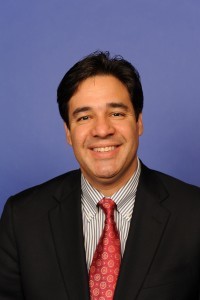Last week, we asked the congressional delegation to weigh in on the Idaho Education Network funding mess — in light of the fact that the Federal Communications Commission briefed the delegation on the matter.
We heard back from Sens. Mike Crapo and Jim Risch and Rep. Mike Simpson for a story we published Friday.

Rep. Raul Labrador? No dice. Labrador’s office didn’t respond to five email and voicemail requests for comment.
Labrador isn’t usually shy about media attention. But this isn’t the first time Labrador has stonewalled us on an education issue.
Last spring, we canvassed education stakeholders and political leadership on the Idaho Core Standards. Labrador’s position seemed particularly germane for two reasons. First, the growing Common Core controversy had spawned an attempt, at least in the Senate, to freeze federal funding for the multistate standards movement. Second, Labrador was at the time publicly mulling a GOP primary challenge to Gov. Butch Otter, a Common Core backer.
Labrador didn’t respond then, either.
We don’t usually have to poll the congressional delegation about education matters, but this was one issue where the delegation has a role in the process. About three-fourths of Idaho Education Network funding, after all, is administered by an FCC contractor, the Universal Service Administrative Company.

Ultimately, it will be up to legislators and Otter to decide whether to put up $14.45 million, to replace the money USAC has placed on hold. One lawmaker on the front lines of this issue is Rep. Shirley Ringo, D-Moscow, a Joint Finance-Appropriations Committee member and Labrador’s presumptive opponent in the November election.
Ringo responded promptly, and at length, to questions we sent to JFAC members late last month. Here are our questions and Ringo’s responses, in full:
Question: Are you comfortable with the explanation the Department of Administration presented Thursday, or do you have unanswered questions?
Response: I am not yet comfortable. I would like to know more about who first learned that the e-rate payments were not coming in, and how much time elapsed prior to the Department of Administration and JFAC chairs being informed.
I am not clear about the details of the issue still under litigation. I recall there was considerable concern about the bidding process and contracts when all of this was initiated. (2009?)
Was everything properly resolved before contracts were initiated – given that a lawsuit was immediately filed?
Question: Do you support or oppose the $14.45 million supplemental budget request?
Response: Hard question – I would like to see everything stop in its tracks until we have a resolution – the question would concern the amount of disruption and whether there are reasonable alternatives.
If we truly cannot get a response from the feds, an appropriate person should make an appointment and meet in person. I want that answer before we proceed.
Question: If you support the request, are there education line items you would consider off-limits for reductions? Are there other line items you would be willing to reduce? (In other words, I am wondering how this supplemental request might affect line items such as deposits to PESF, district operational funding or increases in teacher pay/leadership bonuses.)
Response: For budgeting purposes, I think all moves to take money off the table, such as deposits to rainy fund days, should be fully discussed by JFAC. I would definitely oppose decreasing support for education by this amount money. It would have to be a reduction in the deposit to PESF, which disturbs me because I haven’t yet personally conceded all of those deposits the Governor’s recommended.
